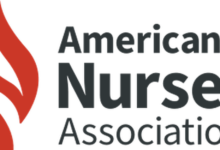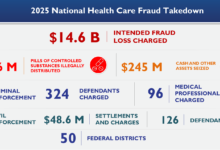How Inflation Reduction Act Impacts Healthcare and Nursing

Signed into law last year on August 16, the Inflation Reduction Act (H.R. 5376) aims to address inflation within the topics of healthcare, climate, and taxes, and its provisions will begin to be put into effect this year. Inflation hit on the heels of the COVID pandemic and has been notable in the rising cost of fuel for cars, food goods in grocery stores, and toys and clothing nationwide and has undoubtedly been the subject of casual comments and discussions among friends, family, and coworkers regardless of the setting. Furthermore, inflation has led professionals across industries to wonder how inflation will affect their work and their wages, if at all.
This article will address a few of the most pressing questions among nurses: How does inflation affect healthcare? What is the inflation reduction act? Will it affect nurses? Will nursing wages rise?
What is the Inflation Reduction Act?
This was an ambitious bill and, as such, unsurprisingly included several large plans. Here’s a breakdown.
- A new tax rate of 15% is to be imposed on corporations with over $1 billion in annual income. This applies only to corporations, not individuals.
- An IRS funding bundle for the next ten years rolls out.
- Clean energy-related tax credits and deductions for individual households, clean vehicle credits for commercial and individual use, excise tax credits for alternative fuels, biodiesel, and renewable diesel, and investments in producing clean-energy processes and technologies will be available.
- Starting in 2026, Medicare will be allowed to negotiate prescription drug prices (specific drugs only), which should lower beneficiary costs.
- Out-of-pocket spending for Medicare Plan D recipients will be capped at $2,000 annually.
- A monthly price cap of $35 will be applied to insulin for Medicare consumers.
- An extension of the Affordable Care Act (ACA) subsidies through to 2025, a relief to the estimated 3 million Americans who would have lost their coverage this year.
- Pharmaceutical companies will incur financial penalties if they raise medication prices beyond the inflation rate.
How Does Inflation Affect Healthcare?

While the plans from the Inflation Reduction Act aren’t explicitly targeting nurses (unless you consider the clean-energy tax credits, which may apply individually), there can be no doubt that the last bullet points on the above list will have an impact on healthcare. As a nurse, you’re frequently able to educate patients and their families about their healthcare and some more in-depth knowledge about what they can expect is an asset.
- The extension of the ACA subsidies will ensure healthcare coverage for over 3 million Americans. As nurses, we all know the importance of healthcare access and preventative health facilitated by health insurance.
- The medication price caps for insulin are good news for all your Medicare patients, as over 37 million Americans of all ages live with diabetes, and 26.4 million people over 65 have prediabetes.
- While the list of prescription drugs that Medicare can negotiate prices on is small, the list will expand through 2029.
- The financial penalties put the pharmaceutical companies that increase costs above or faster than inflation will be paid as rebates directly to Medicare, which may significantly impact the drug companies. According to the Kaiser Family Foundation (KFF), half of all part D-covered Medicare drugs and nearly half of all Part B-covered Medicare drugs in 2020 had price increases above the inflation rate.
Will Nursing Wages Rise?

There is no directive or plan as a part of the IRA to increase nurses’ wages. Nevertheless, this is a pertinent question in the face of rising inflation alone. Nurses are highly sought after in most healthcare settings and multiple specialties nationwide. The demand for nurses creates a good baseline for nurses to negotiate their wages.
In fact, according to the Nursing Salary Research Report (free to download), almost a third of nurses don’t negotiate their salary upon receiving a job offer, even though the salary was found to be the number one factor for job satisfaction among RNs. Moreover, male nurses made $14,000 more annually than female nurses, which is attributed to the data that men are more likely to negotiate for salary than women.
We also know that nursing wages vary widely based on geographic location. Rural areas have a lower cost of living than cities, for example. However, rural areas may also be more willing to negotiate relocation because rural areas are typically the most desperate for clinicians.
Government-funded positions and facilities may have more limits in terms of salary, and jobs under unions may also. So, it’s essential to do your research to understand the limits and possibilities of a position. Specializations and additional certifications may also boost your salary potential.
Consider picking up per diem (PRN) shifts and augmenting your nursing income with the ease of our healthcare staffing smartphone app, Nursa. PRN nursing rates and demand are rising, and the flexibility to pick up shifts when you want is an easy way to boost your wages.






